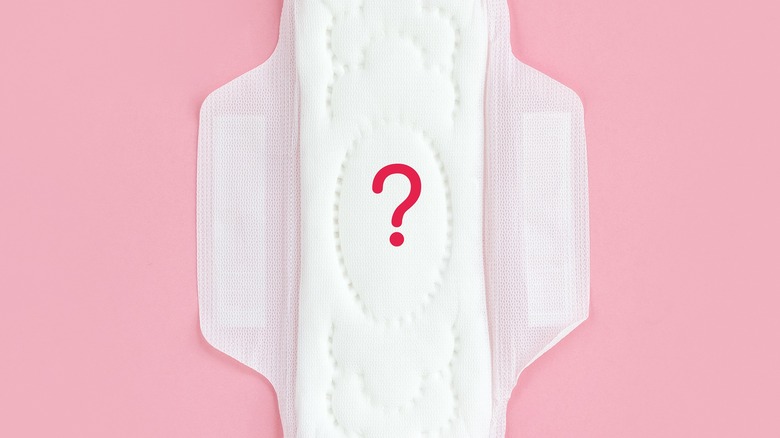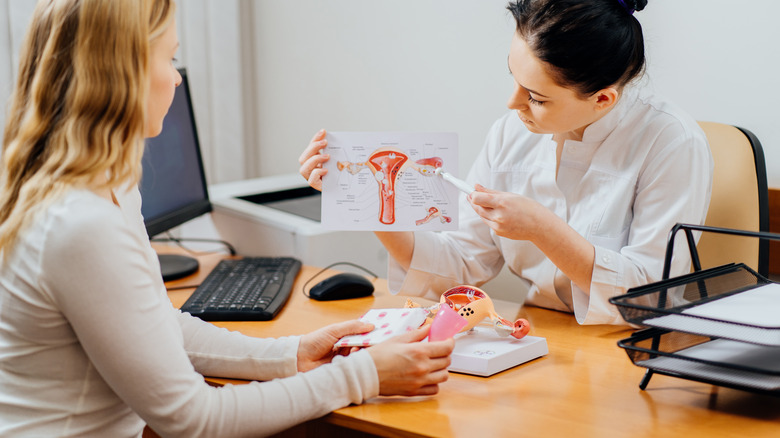Are Menstrual Blood Clots Normal?
It can be hard to know what's considered normal during a menstrual cycle, especially since they can differ widely from person to person. If you've ever experienced blood clots during your period, you might have wondered if it was something to be worried about. Are menstrual blood clots cause for concern?
Menstrual cycles aren't the same for everyone, but they generally last for 21-35 days, according to Healthline. During a menstrual cycle, an egg is released from the ovaries, the uterine lining thickens, and either the egg will be fertilized with sperm, resulting in pregnancy, or not. If not, the hormone levels will drop and the uterine lining will shed, resulting in a period, and the cycle will start again. Some people have regular cycles and others will be more irregular. Some people will have a heavier flow that lasts longer, and some may have light, short periods. Irregularities in cycles can be due to pregnancy, polycystic ovary syndrome (PCOS), eating disorders, or using hormonal contraceptives.
Menstrual blood clots are usually no cause for concern
Blood clots are the body's way of naturally preventing it from losing too much blood (via MedicalNewsToday). The body releases proteins that cause the blood to coagulate, and when bleeding is heavy, these proteins clump together to form a clot. During menstrual bleeding, clots typically happen in the first couple of days when the flow is the heaviest and happen when blood pools in the uterus or vagina. This is the body's natural defense mechanism against losing too much blood and can be a normal part of menstruation.
Sometimes, however, menstrual blood clots can be a sign of a medical condition. If you experience blood clots that are larger than a quarter, very frequent, occur along with extremely heavy flow (where you need to change a pad or tampon every 1-2 hours), or happen with significant pain, you should contact a medical professional. Some conditions that could cause menstrual blood clotting are uterine polyps or fibroids, endometriosis, adenomyosis, hormonal imbalances, pregnancy loss, or an enlarged uterus. If you're concerned about blood clots, make sure you're drinking enough water, avoid aspirin (which can make bleeding worse), eat an iron-rich diet, get regular physical exercise, and consult your doctor.


